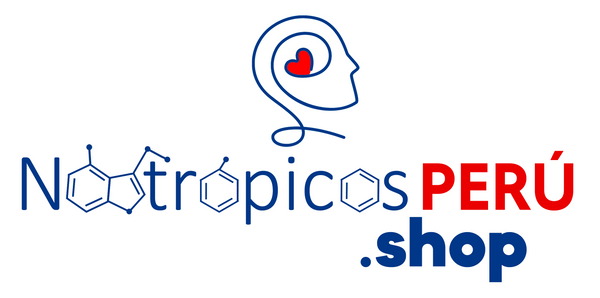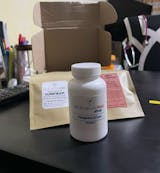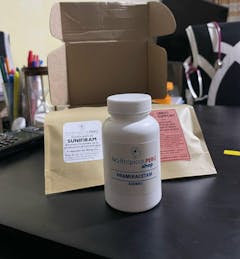¿Qué es la Fosfatidilserina?
La Fosfatidilserina es un fosfolípido esencial que forma parte integral de las membranas celulares, particularmente abundante en el tejido cerebral. Constituye aproximadamente el 15% de los fosfolípidos totales en la corteza cerebral y juega un papel crucial en la señalización celular, la plasticidad neuronal y la comunicación entre neuronas. Como componente estructural clave, mantiene la fluidez y permeabilidad de las membranas celulares, facilitando la transmisión de señales neuronales y la función cognitiva óptima. Su presencia es fundamental para procesos como la memoria, el aprendizaje y la regulación del estado de ánimo.
¿Cómo funciona la Fosfatidilserina en el cerebro?
La Fosfatidilserina actúa como un componente estructural esencial de las membranas neuronales, donde facilita la transmisión de señales y la comunicación entre células. Se integra en la bicapa lipídica de las membranas celulares, donde regula la fluidez y permeabilidad, permitiendo el funcionamiento óptimo de proteínas de membrana, receptores y canales iónicos. También juega un papel crucial en la sinapsis, facilitando la liberación y recaptación de neurotransmisores. Su presencia es fundamental para la plasticidad sináptica, el proceso mediante el cual las neuronas forman nuevas conexiones y modifican las existentes durante el aprendizaje y la memoria.
¿Cuáles son los efectos de la Fosfatidilserina sobre la memoria?
La Fosfatidilserina mejora significativamente diferentes aspectos de la memoria a través de múltiples mecanismos. Optimiza la transmisión de señales entre neuronas, facilitando tanto la formación como la recuperación de recuerdos. Aumenta la eficiencia de la potenciación a largo plazo (LTP), un proceso fundamental para la consolidación de la memoria. También mejora la disponibilidad de acetilcolina, un neurotransmisor clave para la función cognitiva y la memoria. Los estudios han demostrado mejoras en la memoria de trabajo, la memoria episódica y la capacidad de recordar información específica como nombres y fechas.
¿Cómo ayuda la Fosfatidilserina en el manejo del estrés?
La Fosfatidilserina regula el eje hipotalámico-pituitario-adrenal (HPA), el sistema principal del cuerpo para la respuesta al estrés. Modula la producción y secreción de cortisol, ayudando a mantener niveles óptimos de esta hormona del estrés. A través de este mecanismo, ayuda a prevenir los efectos negativos del estrés crónico sobre el cerebro y el cuerpo. También mejora la resistencia al estrés físico y mental, optimizando la recuperación y adaptación a situadores estresantes. Su efecto sobre los neurotransmisores contribuye además a una mejor respuesta emocional ante el estrés.
¿Qué beneficios tiene para el rendimiento deportivo?
La Fosfatidilserina mejora el rendimiento deportivo a través de múltiples vías fisiológicas. Reduce los niveles elevados de cortisol post-ejercicio, lo que facilita la recuperación y previene el catabolismo muscular. Optimiza la función de las membranas celulares musculares, mejorando la eficiencia energética y la respuesta a señales hormonales. También reduce la inflamación asociada al ejercicio intenso y mejora la recuperación muscular. Los estudios han demostrado beneficios en la resistencia, fuerza y tiempo de recuperación entre sesiones de entrenamiento.
¿Por qué es importante para la salud cerebral a largo plazo?
La Fosfatidilserina desempeña un papel crucial en el mantenimiento de la salud cerebral a lo largo del tiempo. Protege las neuronas del estrés oxidativo y la inflamación, factores clave en el envejecimiento cerebral. Mantiene la integridad estructural de las membranas neuronales y facilita la reparación y regeneración neuronal. También apoya la producción de factores neurotróficos que promueven la supervivencia y función neuronal. Su presencia continua es esencial para mantener la plasticidad cerebral y la capacidad de aprendizaje durante toda la vida.
¿Cómo afecta la Fosfatidilserina al estado de ánimo?
La Fosfatidilserina influye positivamente en el estado de ánimo a través de múltiples mecanismos. Optimiza la producción y equilibrio de neurotransmisores clave como la serotonina y dopamina, fundamentales para el bienestar emocional. Regula la respuesta al estrés y los niveles de cortisol, lo que ayuda a mantener un estado de ánimo estable. También mejora la comunicación entre neuronas en áreas cerebrales relacionadas con el procesamiento emocional. Los estudios han mostrado beneficios en la reducción de la irritabilidad y la mejora del equilibrio emocional.
¿Cuándo se empiezan a notar los efectos de la Fosfatidilserina?
Los efectos de la Fosfatidilserina se desarrollan gradualmente y varían según el área de beneficio. Los efectos sobre el estrés y el estado de ánimo pueden notarse dentro de las primeras 2-3 semanas de uso consistente. Las mejoras en la memoria y función cognitiva generalmente se observan después de 4-6 semanas de suplementación regular. Los beneficios para el rendimiento deportivo y la recuperación pueden manifestarse en 2-4 semanas. Para obtener beneficios óptimos a largo plazo, se recomienda un uso consistente durante al menos 12 semanas.
¿Cómo se relaciona la Fosfatidilserina con el sueño?
La Fosfatidilserina influye positivamente en la calidad del sueño a través de varios mecanismos. Regula el ritmo circadiano mediante la modulación de los niveles de cortisol, especialmente importantes para el ciclo sueño-vigilia. Mejora la producción de neurotransmisores que promueven la relajación y el sueño reparador. También reduce la actividad mental excesiva antes de dormir al optimizar la función cerebral y reducir el estrés mental. Los estudios han mostrado mejoras en la latencia del sueño y la calidad del descanso nocturno.
¿Qué diferencia hay entre las diversas formas de Fosfatidilserina?
La Fosfatidilserina está disponible en diferentes formas y fuentes, cada una con características específicas. La forma derivada de la soja es la más común y estudiada, con una excelente biodisponibilidad y perfil de seguridad establecido. La forma derivada del girasol es una alternativa para quienes prefieren evitar la soja. Las formas liposomales ofrecen una mejor absorción debido a su estructura especial que protege el compuesto durante la digestión. Cada forma mantiene la misma estructura molecular básica pero puede variar en su biodisponibilidad y velocidad de absorción.
¿Cómo interactúa la Fosfatidilserina con otros suplementos?
La Fosfatidilserina demuestra sinergias positivas con varios suplementos. Funciona particularmente bien con otros fosfolípidos y compuestos neuroprotectores como la acetil-L-carnitina y el ginkgo biloba. La combinación con omega-3 puede mejorar su incorporación en las membranas celulares y potenciar sus beneficios. También muestra efectos sinérgicos con vitaminas del complejo B y antioxidantes que apoyan la salud cerebral. Sin embargo, es importante espaciar su toma de minerales que podrían interferir con su absorción.
¿Qué hace única a la Fosfatidilserina comparada con otros nootrópicos?
La Fosfatidilserina se distingue por ser un componente natural de las membranas celulares, especialmente abundante en el tejido cerebral. A diferencia de otros nootrópicos que actúan principalmente como moduladores de neurotransmisores, la Fosfatidilserina tiene un efecto estructural fundamental en las células cerebrales. Su capacidad para regular múltiples aspectos de la función cerebral, desde la señalización celular hasta la respuesta al estrés, la hace única. También destaca por su perfil de seguridad bien establecido y sus beneficios amplios y sostenidos.
¿Cómo influye la Fosfatidilserina en la concentración y el enfoque?
La Fosfatidilserina mejora la concentración y el enfoque a través de varios mecanismos neurológicos. Optimiza la transmisión de señales entre neuronas en áreas cerebrales relacionadas con la atención y el procesamiento cognitivo. Mejora el metabolismo de la glucosa cerebral, proporcionando energía más eficiente para el mantenimiento de la concentración. También reduce la distracción mental al modular los niveles de cortisol y regular la respuesta al estrés. Los estudios han demostrado mejoras significativas en la capacidad de mantener la atención sostenida y el enfoque mental.
¿Cómo afecta la Fosfatidilserina a los niveles de energía?
La Fosfatidilserina influye en los niveles de energía a través de múltiples vías metabólicas. Mejora la función mitocondrial en las células cerebrales, optimizando la producción de ATP y la eficiencia energética. Regula los niveles de cortisol, lo que ayuda a mantener niveles de energía más estables durante todo el día. También mejora la utilización de glucosa en el cerebro, proporcionando un suministro más constante de energía para la función cognitiva. Su efecto sobre la calidad del sueño contribuye además a una mejor recuperación y niveles de energía diurnos.
¿Qué papel juega la Fosfatidilserina en la recuperación mental?
La Fosfatidilserina es fundamental para la recuperación mental después de períodos de estrés cognitivo intenso. Facilita la reparación y regeneración neuronal a través de la optimización de la plasticidad sináptica y la función de la membrana celular. Reduce la fatiga mental al regular los niveles de cortisol y mejorar la eficiencia energética cerebral. También apoya la síntesis de nuevas conexiones neuronales necesarias para la recuperación y adaptación mental. Su efecto sobre el sueño y el estado de ánimo contribuye a una recuperación mental más efectiva.
¿Cómo beneficia la Fosfatidilserina al sistema inmunológico?
La Fosfatidilserina influye positivamente en el sistema inmunológico a través de múltiples mecanismos. Regula la respuesta inflamatoria y la producción de citoquinas, ayudando a mantener un equilibrio inmunológico saludable. Mejora la función de las células inmunes y su capacidad para reconocer y responder a amenazas. También optimiza la comunicación entre el sistema nervioso y el sistema inmune, crucial para una respuesta inmune coordinada. Su efecto regulador sobre el cortisol ayuda a prevenir la supresión inmune relacionada con el estrés.
¿Cómo influye la Fosfatidilserina en la cognición social?
La Fosfatidilserina mejora varios aspectos de la cognición social y la interacción interpersonal. Optimiza la función de áreas cerebrales relacionadas con el procesamiento emocional y la empatía. Mejora la capacidad de reconocimiento facial y la interpretación de señales sociales. También reduce la ansiedad social al modular la respuesta al estrés y regular los niveles de cortisol. Su efecto sobre el estado de ánimo y la claridad mental contribuye a interacciones sociales más efectivas y satisfactorias.
¿Qué efectos tiene la Fosfatidilserina sobre la plasticidad cerebral?
La Fosfatidilserina es crucial para la plasticidad cerebral, la capacidad del cerebro para formar y modificar conexiones neuronales. Facilita la formación de nuevas sinapsis y el fortalecimiento de conexiones existentes a través de la optimización de la función de la membrana neuronal. Mejora la señalización celular necesaria para la potenciación a largo plazo, un proceso fundamental para el aprendizaje. También apoya la producción de factores de crecimiento neuronal que promueven la plasticidad y adaptabilidad cerebral.
¿Cómo afecta la Fosfatidilserina a la función mitocondrial?
La Fosfatidilserina juega un papel crucial en la optimización de la función mitocondrial. Mejora la integridad de las membranas mitocondriales, facilitando la producción eficiente de energía celular. Aumenta la actividad de enzimas mitocondriales clave y la eficiencia de la cadena de transporte de electrones. También protege las mitocondrias del daño oxidativo y ayuda a mantener su función óptima bajo condiciones de estrés. Su efecto sobre la función mitocondrial contribuye a una mejor energía celular y función neuronal.
¿Qué relación tiene la Fosfatidilserina con la neuroplasticidad y el aprendizaje?
La Fosfatidilserina es fundamental para la neuroplasticidad y el proceso de aprendizaje. Facilita la formación de nuevas conexiones neuronales necesarias para el aprendizaje al optimizar la función de la membrana celular y la señalización sináptica. Mejora la consolidación de la memoria a través de la regulación de neurotransmisores y factores de crecimiento neuronal. También apoya la adaptabilidad cerebral y la capacidad de aprender nuevas habilidades al mantener la flexibilidad neuronal y la eficiencia sináptica.
¿Cómo influye la Fosfatidilserina en la función hormonal?
La Fosfatidilserina ejerce una influencia significativa en el equilibrio hormonal a través de múltiples mecanismos. Regula el eje hipotalámico-pituitario-adrenal, influyendo en la producción y secreción de hormonas del estrés como el cortisol. Mejora la sensibilidad de los receptores hormonales en las membranas celulares, optimizando la respuesta hormonal. También puede influir en la producción de testosterona y otros andrógenos, especialmente importantes para la recuperación física y el rendimiento atlético.
¿Cómo afecta la Fosfatidilserina a la función cerebral durante el ejercicio?
La Fosfatidilserina optimiza la función cerebral durante el ejercicio a través de múltiples mecanismos. Mantiene la integridad de las membranas neuronales bajo el estrés oxidativo aumentado durante la actividad física intensa. Regula los niveles de cortisol para prevenir el agotamiento mental y mantener la claridad cognitiva durante el entrenamiento. Mejora el flujo sanguíneo cerebral y la utilización de glucosa, proporcionando energía sostenida para la función mental durante el ejercicio. También optimiza la comunicación entre el sistema nervioso central y el sistema muscular, mejorando la coordinación y el rendimiento físico.
¿Qué papel juega la Fosfatidilserina en la salud mitocondrial neuronal?
La Fosfatidilserina es crucial para la salud y función de las mitocondrias neuronales. Se integra en las membranas mitocondriales, donde optimiza la producción de energía y la eficiencia de la cadena de transporte de electrones. Protege las mitocondrias del daño oxidativo y mantiene su integridad estructural bajo condiciones de estrés celular. Mejora la comunicación entre las mitocondrias y otros componentes celulares, facilitando la señalización necesaria para la supervivencia y función neuronal. También apoya la biogénesis mitocondrial y la eliminación de mitocondrias dañadas.
¿Cómo influye la Fosfatidilserina en la neurotransmisión?
La Fosfatidilserina juega un papel fundamental en la regulación de la neurotransmisión. Optimiza la estructura y función de las membranas sinápticas, facilitando la liberación y recaptación de neurotransmisores. Mejora la sensibilidad de los receptores neuronales y la eficiencia de la señalización sináptica. También apoya la síntesis y metabolismo de neurotransmisores clave como la acetilcolina, serotonina y dopamina. Su presencia en las membranas neuronales es esencial para mantener la plasticidad sináptica y la comunicación efectiva entre neuronas.
¿Qué efectos tiene la Fosfatidilserina sobre la barrera hematoencefálica?
La Fosfatidilserina influye positivamente en la función y la integridad de la barrera hematoencefálica. Mejora la estructura de las células endoteliales que forman esta barrera, optimizando su función protectora. Regula la permeabilidad selectiva de la barrera, facilitando el transporte de nutrientes esenciales al cerebro mientras mantiene fuera las sustancias potencialmente dañinas. También ayuda a mantener las uniones estrechas entre las células endoteliales y reduce la inflamación que podría comprometer la integridad de la barrera.
¿Cómo afecta la Fosfatidilserina a la respuesta inflamatoria cerebral?
La Fosfatidilserina modula la respuesta inflamatoria en el tejido cerebral de manera significativa. Regula la activación de células gliales y la producción de citoquinas proinflamatorias, manteniendo un ambiente neurológico equilibrado. Reduce la expresión de marcadores inflamatorios y mejora la resolución de la inflamación aguda. También optimiza la función de las células inmunes residentes del cerebro, ayudando a mantener un estado antiinflamatorio saludable. Su efecto sobre la señalización celular ayuda a prevenir la inflamación crónica que podría dañar las neuronas.
¿Qué relación tiene la Fosfatidilserina con la autofagia neuronal?
La Fosfatidilserina desempeña un papel crucial en la regulación de la autofagia neuronal, el proceso de limpieza celular. Facilita el reconocimiento y eliminación de componentes celulares dañados o envejecidos, manteniendo la salud neuronal. Optimiza la función de los lisosomas y la formación de autofagosomas, estructuras esenciales para la autofagia. También regula las vías de señalización que controlan este proceso, asegurando un equilibrio adecuado entre la degradación y la renovación celular. Su presencia es fundamental para mantener la homeostasis neuronal y prevenir la acumulación de proteínas dañadas.
¿Cómo influye la Fosfatidilserina en el metabolismo energético cerebral?
La Fosfatidilserina optimiza el metabolismo energético cerebral a través de múltiples mecanismos. Mejora la utilización de glucosa por parte de las neuronas, asegurando un suministro constante de energía. Facilita el transporte de nutrientes a través de las membranas celulares y optimiza la función mitocondrial para una producción eficiente de ATP. También regula la señalización insulínica en el cerebro, mejorando la sensibilidad a la insulina de las células cerebrales. Su efecto sobre el metabolismo energético contribuye a una función cognitiva sostenida y eficiente.
¿Qué efectos tiene la Fosfatidilserina sobre la neurogénesis adulta?
La Fosfatidilserina influye positivamente en la neurogénesis adulta, el proceso de formación de nuevas neuronas. Promueve la proliferación y supervivencia de células madre neuronales en regiones específicas del cerebro como el hipocampo. Optimiza el ambiente celular necesario para la diferenciación y maduración de nuevas neuronas. También regula factores de crecimiento y señales moleculares que guían la migración e integración de las nuevas neuronas en los circuitos existentes. Su presencia es crucial para mantener la capacidad del cerebro de generar nuevas células nerviosas durante la vida adulta.
¿Cómo afecta la Fosfatidilserina a la función del sistema nervioso autónomo?
La Fosfatidilserina modula la función del sistema nervioso autónomo a través de varios mecanismos. Optimiza la comunicación entre los componentes simpático y parasimpático, ayudando a mantener un equilibrio homeostático. Regula la respuesta al estrés y la activación del sistema nervioso simpático mediante la modulación de los niveles de cortisol. También mejora la función de los neurotransmisores involucrados en la regulación autonómica, contribuyendo a una mejor adaptación a diferentes situaciones fisiológicas y de estrés.
¿Qué papel juega la Fosfatidilserina en la regulación del ciclo circadiano?
La Fosfatidilserina influye significativamente en la regulación del ciclo circadiano a través de múltiples vías. Modula los niveles de cortisol diurnos, ayudando a mantener un ritmo natural de vigilia y sueño. Optimiza la función de los núcleos supraquiasmáticos, el reloj principal del cerebro, mediante la mejora de la señalización neuronal. También regula la producción y liberación de neurotransmisores involucrados en el ciclo sueño-vigilia. Su efecto sobre la plasticidad sináptica contribuye a la adaptación del cerebro a los patrones circadianos.



















